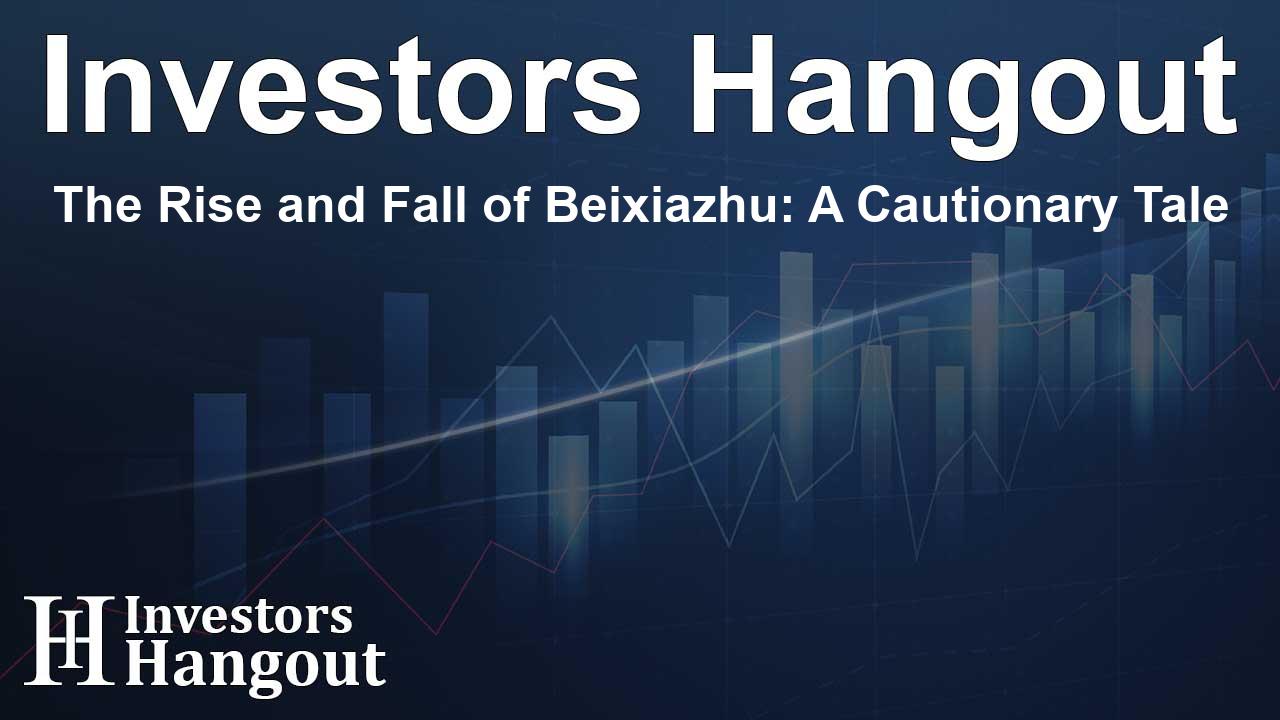The Rise of Beixiazhu in the E-Commerce Landscape
At first glance, Beixiazhu appears to be an ordinary village in China, but it once played a pivotal role for entrepreneurs eager to explore the flourishing live-streaming e-commerce sector. In recent years, this village emerged as a vibrant hub of opportunity, attracting merchants who sought to capitalize on the explosive growth of e-commerce channels. The live-streaming trend truly took off around 2019, fueled by popular platforms that allowed sellers to reach potential customers instantly.
The Glory Days of Live-Streaming E-Commerce
Beixiazhu, located on the periphery of Yiwu city, the global wholesale capital, became a go-to place for ambitious sellers who yearned for success in this burgeoning industry. They quickly transformed the village landscape with their vibrant storefronts and engaging marketing strategies aimed at capturing audiences. As aspiring entrepreneurs flocked to Beixiazhu, the excitement surrounding the industry reached fever pitch, with many believing they could achieve fame and wealth just through a single live stream.
The Shift in Atmosphere
However, the once-boisterous energy of Beixiazhu has been replaced by a somber quiet. Largely deserted now, the houses that once bustled with activity echo the memories of past sellers. Signs proclaiming offers of "super supply chains" and "viral hot-selling products" remain plastered on storefronts, remnants of a golden era. A faded slogan still whispers from a wall: "Without dreams, why come to Yiwu?" The absence of the crowds is a stark reminder of the rapidly changing landscape of e-commerce.
The Cutthroat Nature of Competition
Business owners reflect on the fierce competition that defined this sector. Merchants would jump onto trending products, often selling them at lower prices, which resulted in a race to the bottom, leaving many without profits. This concept, known in local terminology as juan, highlights the relentless race within the industry that ultimately drained resources and left little for everyone.
The Impact of Involution on E-Commerce
The competitive nature of the market caught the attention of the Chinese government, leading to a significant policy shift aimed at addressing the dangers associated with excessive competition. Reports indicated that this shift was a response to the pressures of involution and its potential to disrupt critical supply chain upgrades, which are vital for economic stability.
The Current State of E-Commerce in Yiwu
Despite the troubling trends observed in Beixiazhu, the nearby Yiwu International Trade Market continues to thrive. This vast market is a well-known hub for manufacturers and sellers, encompassing an impressive array of booths where various items are exchanged. In 2023, its export volume notably increased, highlighting the resilience of the wholesale sector. Buyers from all over the world flock to Yiwu, haggling over prices and discovering affordable products by the millions.
Adapting to a Changing Marketplace
While the market remains bustling, numerous small merchants voice their concerns about profitability amid intense competition. Oversupply combined with low consumer spending has created a challenging environment. Merchants are reevaluating their strategies, focusing on product quality and differentiation, often in an attempt to find a foothold in the evolving marketplace.
Future Prospects amidst Challenges
As the e-commerce scene continues to shift, companies such as Douyin and Alibaba are adjusting their business models to enhance profitability, moving away from price-based competition. The government has also implemented stimulus measures aimed at reviving economic growth, positioning the industry for potential recovery over the coming year.
Frequently Asked Questions
What led to the decline of Beixiazhu?
The decline of Beixiazhu was largely due to cutthroat competition, where merchants would undercut each other's prices, leading to unsustainable business practices.
How did live-streaming e-commerce emerge in China?
Live-streaming e-commerce took off in China around 2019, driven by platforms like Douyin and Kuaishou, enabling sellers to reach larger audiences instantly.
What is the significance of the Yiwu International Trade Market?
Yiwu International Trade Market is known as the largest wholesale hub for small manufactured items in the world, significant for its extensive variety and economic impact.
How are merchants adapting to the changing e-commerce landscape?
Merchants are focusing on product quality and differentiation to stay competitive, responding to market dynamics by reassessing their business strategies.
What measures is the Chinese government taking to address e-commerce challenges?
The Chinese government has unveiled stimulus packages aimed at boosting economic growth, specifically designed to assist the struggling housing market and increase consumer spending.
About The Author
Contact Caleb Price privately here. Or send an email with ATTN: Caleb Price as the subject to contact@investorshangout.com.
About Investors Hangout
Investors Hangout is a leading online stock forum for financial discussion and learning, offering a wide range of free tools and resources. It draws in traders of all levels, who exchange market knowledge, investigate trading tactics, and keep an eye on industry developments in real time. Featuring financial articles, stock message boards, quotes, charts, company profiles, and live news updates. Through cooperative learning and a wealth of informational resources, it helps users from novices creating their first portfolios to experts honing their techniques. Join Investors Hangout today: https://investorshangout.com/
The content of this article is based on factual, publicly available information and does not represent legal, financial, or investment advice. Investors Hangout does not offer financial advice, and the author is not a licensed financial advisor. Consult a qualified advisor before making any financial or investment decisions based on this article. This article should not be considered advice to purchase, sell, or hold any securities or other investments. If any of the material provided here is inaccurate, please contact us for corrections.

